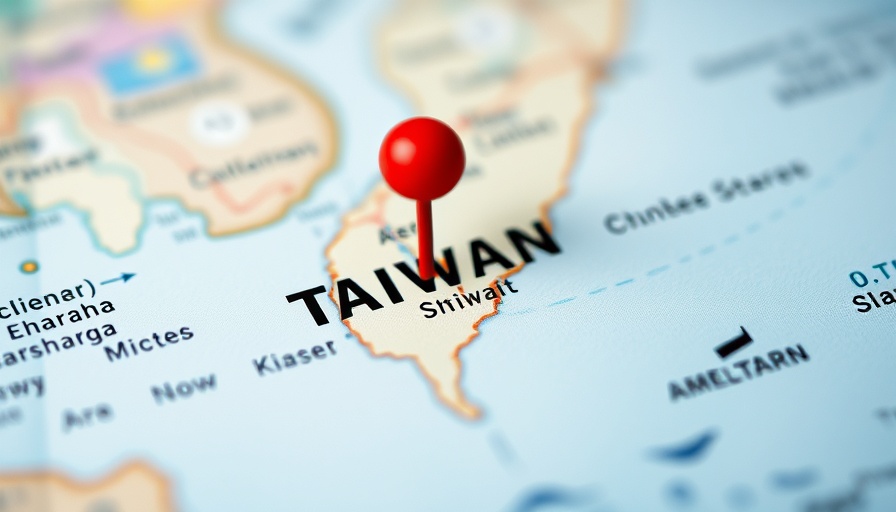
China's Stern Warning in the Taiwan Strait
The ongoing tensions in the Taiwan Strait took a sharp turn as China's military firmly condemned the recent passage of a U.S. destroyer and a British frigate through this politically sensitive waterway. The People's Liberation Army's Eastern Theatre Command labeled the action of the USS Higgins and HMS Richmond as "trouble-making and provocation," citing it as a direct threat to regional stability.
The Global Stakes of Taiwan Strait Maneuvering
The Taiwan Strait is not just any strip of water. It’s a crucial maritime route that facilitates international trade, making regular military traversals by U.S. and allied forces a significant geopolitical statement. According to reports, China claims this area as part of its territory, maintaining a stance that any foreign military presence here exacerbates tensions. In contrast, the United States and several allies, including Canada, recognize the strait as an international passage, asserting their rights to freedom of navigation.
The Broader Implications of Military Presence
This escalation does more than just stir up military posturing. China's condemnation of the warships signifies a pivotal moment in a long history of time-worn tensions over Taiwan, a self-governing democracy that Beijing considers a breakaway province. The implications are vast and encapsulate not just military strategy but the potential for economic ramifications across the globe. Observers are already assessing how continued U.S. presence here could trigger stronger military responses from China.
Freedom of Navigation: Legal vs. Geopolitical Perspectives
Britain's Ministry of Defence was quick to defend their naval operations as routine and compliant with international laws. They argue that asserting freedom of navigation is crucial in an era where military conflicts sway global economic stability. However, such assertions have become increasingly contentious. A similar passage last week by an Australian and Canadian warship hints at a growing coalition of Western powers willing to push back against China's expansive territorial claims in the South China Sea.
Future Picture: Escalating Tensions?
This situation is developing. With every U.S. and allied naval excursion into these contested waters, there’s a growing sense of an impending conflict, which could spiral if both sides remain unwilling to compromise. Recent events suggest that the trajectory of military operations could foreshadow escalating confrontations—not only between nations in East Asia but potentially drawing in other global powers into what some might term a new Cold War.
Engaging with the Taiwan Issue: A Collective Responsibility
As citizens and stakeholders in a globalized world, understanding the nuances of the Taiwan Strait's turmoil is vital. The decisions made in the corridors of power impact lives across continents—from trade relationships to humanitarian crises. Being informed means acknowledging the stakes involved and advocating for diplomacy over destruction.
What’s Next? Mobilizing Opinions
To navigate these waters safely, we need a more engaged citizenry that is informed about international relations and the roles we play within them. Action can range from participating in discussions about foreign policy to pushing our leaders toward more diplomatic solutions.
Consider the implications of the Taiwan Strait situation on your daily life—whether through technology imports, international trade, or the broader global political landscape. Striving for peace and understanding while asserting rights in international waters can create a balance that contributes to a more stable future.
 Add Row
Add Row  Add
Add 




Write A Comment